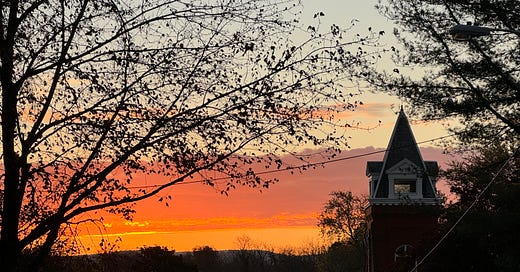Clear Sight
According to a classic yoga myth, once, long, long ago, there was a warrior named Arjuna, the archer, who, because of his dedicated practices and absolute faith, lived in the world with perfect, one-pointed vision from which he never wavered. So aligned was his gaze toward love and justice that his arrow never faltered or went off course. His was the alignment of always hitting his mark, and that mark was toward only all that which was evil and unjust.
Yet, even with his dedication and faith, there’s a moment at the beginning when Arjuna, asked to use his skills to fight against injustice and hatred, falters. His vision in that moment becomes clouded by fear, anxiousness over what the outcome might be. Suddenly the ground beneath him is shaky.
In this moment, Arjuna doesn’t turn to his friends for advice. He doesn’t look to the world to tell him how to act. He does not turn on his phone and click onto a social media source to see how many “likes” he gets on his post about the event to come, or to read a series of soudbites posted out of context. In the moment of his faltering, Arjuna pauses and turns to God for wisdom. He stops, moves away from the noise of the world, and has a really juicy conversation with the creator of all.
When is my own vision one-pointed, my gaze aligned with love and justice? Mostly these days, I can feel myself come into this alignment in the mornings when I have my own juicy conversations with God or when I am outside moving with the natural intelligence of the world. When is it not? When I enter into the false reality of social media world, with its soundbites and AI generated memes and misinformation.
This week, after a troubling and divisive election process, I found myself aligning my gaze in the wrong direction. In the moments Wednesday morning after the Tuesday election results were announced, I did what I know better than—I turned on Facebook. Post after post of soundbites, click bate, quotes taken out of context, justifications for one side over the other. My first reaction, in confession, was to delete people from my feed, delete them from my awareness.
And then? What does this turn me toward? What does it turn me away from? Who does this turn me into?
Reading about the practice of compassionate nonviolence, longtime yoga teacher Donna Farhi reminds that each time we kick someone out of our heart we develop a hole in our self that cannot be repaired until we invite this person back in. In theory this sounds lovely; yet, there are so many convenient loopholes, reasons why someone in particular might not be welcome in my heart.
Farhi writes, “This is why working with our most deeply held resentments and grudges can bring about the greatest change…when we view the world from a perspective of connectedness, acting from our highest nature becomes our most likely choice. We don’t have to struggle to be these higher qualities. What we undoubtedly will struggle to do, however, is to change our point of view. Coming to the place where we are able to see from this vantage point is a radical process.”
Part of the aligned gaze is not the eye that searches outwardly, it is the eye that searches inwardly, that experiences the rub of the grain of sand that is ego making it impossible to see clearly into the truth of our interconnection. Radical, yes, and so necessary.
I long for my children to know a world that is richer than soundbites, kinder and more civil than social media discourse. And I long for them to align their vision toward integrity, that they may know how to hold to account the leaders in their communities and country, that they stand as people of integrity not only for the people they serve, but for all beings everywhere. How might I set an example of this?
A writer I admire said this week that in the midst of intense emotions, with some crying out about prayers heard and others saying God did not hear their prayers at all, that the ordinary Christian, “the one who does not feel wise and worries about the state of world” might tell herself to keep praying, not because it will shift something in the world, though it might. But more likely it will shift something in her.
It is in the quiet stillness, the pauses from looking into the world, the prayer that I breathe into my being, that changes me, changes the direction through which I see the world, how I decide to align my heart.
In the quiet conversation, what is the clear-eyed wisdom I sense I am reminded of? It is not for “likes” or for soundbites or for ego that we live. And it is not through more division, separation, seeds of greater hate and violence, that any one of us will be whole. I breathe long and slow. Do justice, love kindness, and walk humbly with one another and with God, this is the unshakeable ground of everything.
Tin Cup, Thomas DeFreitas
I have been a beggar of blessings, a mendicant of mercies, rattling my cup for spare grace. I love, with the heart of my heart, the one who pauses over me to toss me a few dimes of light. But I love even more the one who, having no light to give, spends a few long minutes in the darkness with me, speaking consolation, maybe even singing. (poem copyright 2024, by Thomas DeFreitas)




